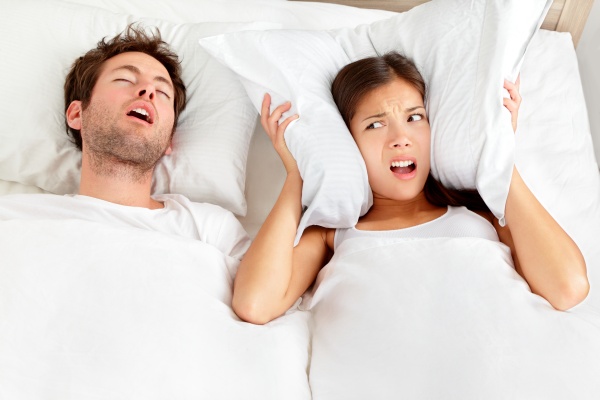How a Dental Oral Appliance Helps with Sleep Apnea

Sleep apnea is a serious condition that causes people to stop breathing for a few seconds at regular intervals while sleeping. When the air passages are blocked, airflow is restricted temporarily, reducing the amount of oxygen the brain gets. The condition has physiological and mental implications for the patient and can cause unwanted side effects. An available treatment option for sleep apnea are oral appliances, which are provided by dentists.
Oral appliance therapy for sleep apnea
Oral appliances are created to be worn inside the oral cavity by a patient while sleeping. They prevent the air passages from closing or collapsing and ensure free and easy breathing. The device is highly effective for treating mild to moderate cases of sleep apnea.
There are several types of oral devices available for treating sleep apnea and snoring. These devices will either move the lower jaw forward or work as tongue retaining appliances. Each aims to prevent or restrict the tongue from falling backward and inhibiting the airway.
A mandibular advancement device (MAD) looks like a mouthguard. The device fits over the top and bottom teeth and the two halves are held together by hinges. Once in place, the MAD shifts the lower jaw forward, stabilizing the tongue and soft palate to ensure the airway stays open during sleep.
Tongue retaining devices are less frequently recommended. They are splint-like appliances that work by holding the tongue forward. They are not as comfortable or as user-friendly as the mandibular advancement device.
Boil and bite devices are procured over the counter as a one-size-fits-all. The patient will immerse it into hot water and then bite into it to fit. They are cheap alternatives, but they are not nearly as effective as custom-made dental devices. They may even worsen the problem.
A patient with sleep apnea will benefit from getting a custom-made appliance from their dentist, especially if they habitually grind their teeth or like to sleep on their back or stomach. A custom device will improve quality of sleep, reduce the rate and intensity of snoring and minimize the number of breathing cessations that occur during the night. Generally, there is a higher compliance rate with oral appliances than CPAP machines.
Points to consider
Dental appliances have proven successful in managing sleep apnea on a long-term basis when compared to traditional surgery treatment for sleep apnea, which involves removing the soft tissues at the back of the throat.
There are, however, drawbacks to the use of oral appliances. Prolonged usage can sometimes cause changed bite, dry lips, excessive salivation, and movement or pain in the teeth. The dentist will continually monitor the patient to ensure the effectiveness of the oral device.
In conclusion
If you are considering getting an oral dental appliance for the treatment of sleep apnea, you need to discuss it with your general dentist first. The dentist will assess the condition to know if you will benefit from the device. In severe cases of sleep apnea, the CPAP device may be used together with an oral appliance for successful treatment.
Request an appointment here: https://artisandentalbellevue.com or call Artisan Dental at (425) 454-2005 for an appointment in our Bellevue office.
Check out what others are saying about our services on Google: Read our Google reviews.
Related Posts
Research shows that many individuals want a smile makeover from an experienced dentist. A smile is something that is clearly noticeable. That is why fixing cosmetic dental issues is a priority. Knowing what is in store can help you make informed decisions. Here are the details on how a smile makeover can rectify dental inadequacies.Some…
A smile makeover is a treatment plan designed to enhance a patient’s smile through various procedures. Two of the most common are dental veneers and dental crowns. Which one of these treatments a dental professional may recommend will depend on the condition of the patient's teeth, including health and appearance, and their goals for their…
A smile makeover involves a treatment plan that improves a smile's appearance. It can involve a wide range of procedures, from dental and gum procedures to teeth straightening treatments. If you are considering this process to enhance your smile, here are some key things to know that will help you set yourself up for a…
Proper care of dentures ensures a comfortable fit, long-lasting function, and a confident smile. For patients relying on dentures, maintaining oral health extends beyond daily wear—it requires consistent cleaning, timely adjustments, and routine dental evaluations. Understanding the complete denture care plan helps preserve both the appliance and the health of the surrounding tissues.Patients must clean…









